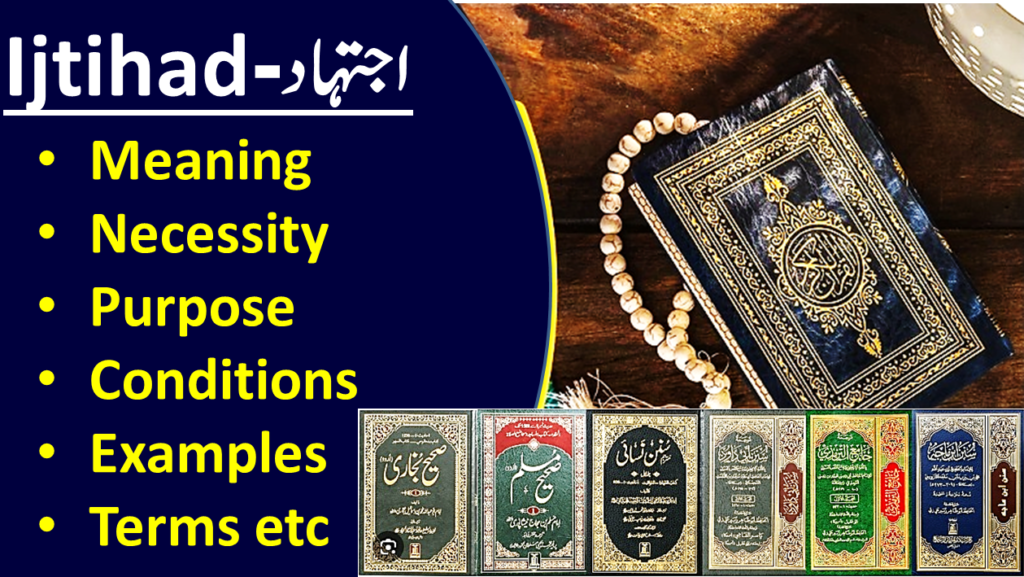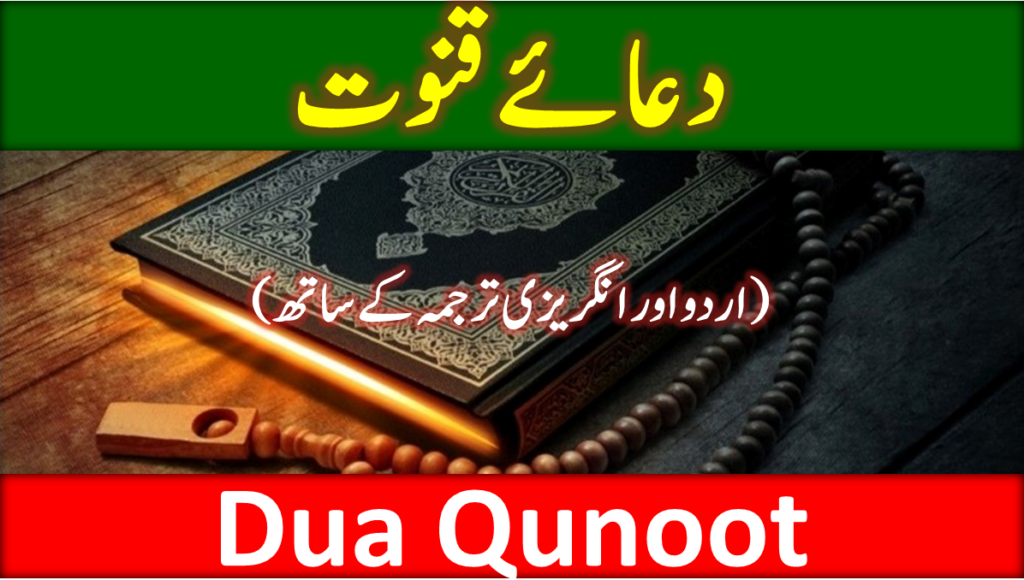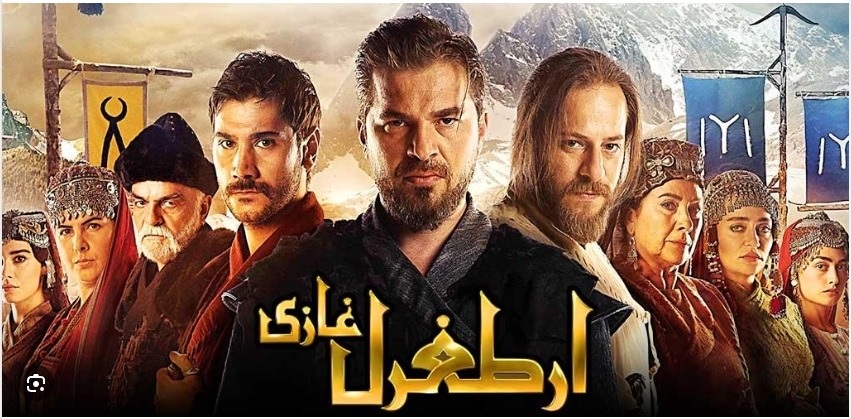Introduction
The debate surrounding the existence of God has captivated the human mind for centuries. While faith and religious experiences have traditionally provided a foundation for belief, some argue that scientific evidence can also shed light on the existence of a higher power. In the realm of science, theories and discoveries have sparked discussions regarding the existence of God. While science primarily focuses on empirical observations and natural explanations, some argue that scientific evidence can support the idea of a divine creator. In this article, we will explore several scientific proofs that contribute to the notion of God’s existence, supported by relevant examples.
1. The Cosmological Evidence of an Uncaused Cause (Existence of God)
The cosmological argument posits that the existence of the universe necessitates a cause or a “first mover.” The Big Bang Theory, which suggests that the universe originated from a singularity, supports this argument. The concept of causality demands that something must have caused the Big Bang, setting the universe into motion. This implies the existence of a transcendent entity that initiated the cosmic creation. The cosmological argument suggests that the existence of the universe implies the existence of a first cause or an Uncaused First Cause.
Example: The discovery of cosmic microwave background radiation, a remnant of the Big Bang, provides strong evidence for the universe’s initial expansion and supports the need for a first cause.
2. Fine-tuning and Consolidation of the Universe
A keen study of the universe clearly shows that the whole creation (each and everything of the universe) has been created perfectly. Every creation of the universe is consolidated and decorated in the most beautiful way. Perfection, stability and cogency is evident in each and every creature. For example, mountains have been firmly fixed. Heavens are miraculously raised without pillars. Allah Almighty says in the Holy Quran:
وَتَرَى الْجِبَالَ تَحْسَبُهَا جَامِدَةً وَّهِىَ تَمُــرُّ مَرَّ السَّحَابِ ۭ صُنْعَ اللّٰهِ الَّذِيْٓ اَتْقَنَ
كُلَّ شَيْءٍ ۭ اِنَّهٗ خَبِيْرٌۢ بِمَا تَفْعَلُوْنَ (النمل:88)
Translation: And, (O man,) you will see the mountains and think them firmly fixed whereas they will be flying like the passing of clouds. (This) is the work of Allah, Who has made everything strong and stable (with Wisdom and Strategy). Surely He is Well-Aware of all.
3. Intelligent and Intentional Design of the Universe
The design of the universe clearly indicates the presence of an All-Intelligent Mind عقلِ کُل. The whole universe and everything in it has been created on a special pattern. Nothing is created randomly or purposelessly. Astonishingly, everything in the universe is so arranged that living beings can well benefit from it. Four elements of nature i.e. water, air, soil and fire are available to keep the living beings alive as long as the Creator wills. The concept of the “Intelligent and Intentional Design of the Universe” proves a deliberate and purposeful design by an intelligent entity. Proponents of this idea argue that certain features of the universe and living organisms exhibit characteristics that cannot be explained solely by natural processes, but rather indicate the involvement of an intelligent creator. Here are a few examples often cited in discussions related to intelligent design:
- Particular Arrangement of the objects like seas, mountains, plants, stars, planets etc
- Placement of Living beings in accordance with their needs
- Availability of all basics which are inevitable for living beings i.e. four elements of nature
- The Complexity of the Cell
- Changing of weathers
- Subduing certain creatures for the use of human beings e.g. air, water, animals etc
- Information in the Genetic Code (DNA)
- Fingerprints
- Origin of Life and Continuation of the Generations
4. Diversity and Unity in the Creation (Existence of God)
Diversity and unity are two fundamental aspects of creation that are interconnected and mutually beneficial. This is again scientific proof of God’s existence. Diversity refers to the existence of a wide range of distinct elements or entities within a system. It encompasses differences in attributes such as race, ethnicity, culture, language, beliefs, perspectives, and talents. In nature, diversity can be observed in the rich variety of ecosystems, species, and genetic makeup. Unity, on the other hand, refers to the state of being united or coming together as one cohesive whole. It involves the integration and cooperation of diverse elements for a common purpose or goal. Unity can be observed in the harmonious functioning of ecosystems, where various species and organisms interact and rely on each other for survival.
فَیَا عَجَباً کَیْفَ یُعْصَیٰ الْاِلٰہ
اَمْ کَیْفَ یَجْحَدُہُ الْجَاحِد
وَفِیْ کُلِّ شَئیٍ لَہٗ اٰیَة
تَدُلُّ علٰی أَنَّہٗ وَاحِد
Translation of the Verses: It is surprising how one can disobey Allah or deny His existence. When there is a sign and proof of His existence in everything, which is testifying that He stands alone. He has no partner.
5. Individual Uniqueness (Existence of God)
It is a mind-blowing fact of Allah’s creation that despite countless objects of nature, no one 100% resembles the other one. One example of variation in God’s creation that showcases individual uniqueness is fingerprints. Fingerprints are distinct patterns formed by ridges and furrows on the skin of human fingers. These patterns are unique to each individual, and no two people have the exact same fingerprints. This remarkable variation in fingerprints is a testament to the intricate and diverse nature of God’s creation. It serves as a reminder of the infinite possibilities and attention to detail present in the world around us. Even modern science has brought forward this great sign of the Greatest Creator i.e. Allah Almighty.
6. Perfect and Flawless System of the Universe
As we all know that a man-made system always remains vulnerable to deterioration or destruction. There are countless examples of this acknowledged fact. Take the example of human formulated traffic control system. Despite well thought and well-planned traffic system; there are accidents daily and everywhere. These accidents are either due to the flaws of human-made traffic systems or the inability of system makers to control everyone under this system. On the other hand, a great matchless system of the universe which has been created more than billions of years ago is always flawless. Planets move on their axis, weathers are changing according to a set pattern and timeframe. Everything in the universe is working totally in accordance with its specific nature.
7. Creation of Mind / Brain (Existence of God)
Everything is this universe has been created by the Greatest Mind. There are certain creatures which have minds and senses. Of course, there must be a mind greatest of all, who has created mind in His creatures like human beings, jinn, and angles. Another point to be understood is that the limitation of the mind of the creatures is proof that there is a mind which is free of any limit. This greatest and perfect mind is of the Creator of mind Himself i.e. Allah the Perfect Wisdom.
8. Unique Creation by the Greatest Creator (Allah)
Generally, everything created by God is unique and matchless. No one can ever create anything like the creation of God. According to the Holy Quran, they (all other than Allah) cannot even create a fly. If one ponders upon the creation of heavens, oceans, milk, honey, grains etc, he will certainly have to believe that all this has been created by God; the Best and Greatest Creator. It is simply impossible for the creature to create or make such matchless creations.
9. Helplessness and Dependency of Human Beings
Can anyone ever think that the universe and everything in it, has been or can be created by some human being? No, no one can ever say or even think like this. No man or ghost or angel can make/create such a grand and great universe. Rather human beings, jinn, angels etc are themselves a creature of God (Allah Almighty). The helplessness and dependency of the creature obviously prove that there is a God Who is All-Powerful, Almighty, and the Sole Creator and Controller of the universe. Everything and everyone is dependent on God but God is not dependent on anything or anyone.
10. Science Rather, Helps and Serves as a Source of Identifying God
There is no denial to the fact that if some creation of God is scientifically proven as a fact, it proves the Existence of God. For example, science after exploring the universe, has reached the finding and conclusion that God exists. Likewise, science has confirmed much scientific information given by Allah Almighty in His Holy Book “Quran”. Some examples include:
- Embryology: The Quran accurately describes the stages of human embryonic development, including the formation of bones and muscles. It mentions the development from a “sperm-drop” to a fully formed fetus.
- Mountains as Stabilizers: The Quran refers to mountains as “pegs” or stabilizers that prevent the Earth’s crust from shaking. This concept aligns with the modern understanding of tectonic plates and their role in stabilizing the Earth’s surface.
- Water Cycle: The Quran describes the water cycle, mentioning the process of evaporation, condensation, and precipitation. It recognizes the role of water in sustaining life on Earth.
- Creation of the Universe: The Quran mentions the concept of the “Big Bang” and the subsequent creation of the universe. It describes the initial state of the universe as “smoke” and its expansion.
- Celestial Orbits: The Quran refers to celestial bodies, such as the sun, moon, and stars, following their prescribed orbits. This corresponds to the modern understanding of celestial motion and the laws of gravity.
- Fingerprint Unique Patterns: The Quran mentions that human fingerprints have unique patterns. This aligns with modern forensic science, which uses fingerprints as a means of identification.
11. Expansion of the Universe – A Clear Proof of God’s Existence
The Creator of the Universe “Allah the Almighty” says in the Holy Quran:
وَالسَّمَاۗءَ بَنَيْنٰهَا بِاَيْىدٍ وَّاِنَّا لَمُوْسِعُوْنَ (الذّٰریات:47)
Translation: And We built the heavenly universe with great might. And surely We are expanding (this universe) more and more.
The galaxy in which the Sun is located is called the Milky Way. It is estimated that there are 400 billion stars in the Milky Way. To measure them, scholars coined the term light year. To understand the light year, keep in mind that light travels at a speed of 186,000 miles per second. It takes about eight minutes to travel 150 million kilometres from the sun to the Earth. If light travels at the same speed for one year, it is called a light year. The diameter of the Milky Way is one hundred thousand light years. While the distance from the centre of the galaxy to the sun is 26,000 light years.
Beyond that, our galaxy itself has no place in the universe. The Andromeda Galaxy is 2180000 light-years away from us. It is estimated that there are 300 to 400 billion stars in it. While there are billions of galaxies. There are millions of light years between them. All of them are not stationary, but rotating around their centre and also moving in space. Astronomers believe that the number of galaxies in the universe is around 125 billion. Scientists say that if we reach the end of this distance with our telescopes, we will still see the same view because the universe is constantly expanding.
12. Recognition of the Creator (Allah) through His Signs
It is an acknowledged fact that seen and unseen entities both are realities. Fragrance does exist even if it is not visible. Likewise, there are certain known creations which are not generally seen e.g. Jinn (Ghost) Angels etc. A creation always indicates and proves its creator. Nothing in this universe is created without a creator except the greatest creator Himself. The Greatest Creator (The Ultimate Reality) is ever-living. He is first of all (everything) and not created by someone. Rather He is the Sole creator of each and everything in this universe and the universe itself. Everyone is dependent on Him and He is not dependent on anyone. This is His glory and uniqueness. Everything which has been created by the Real Creator is a manifest sign of its Creator (Allah).
Example: For instance, if some vehicle passes through a muddy road, its wheels certainly leave their signs. Even when the said road becomes dry, a person is sure that a vehicle must have passed from this place or road. He becomes sure about passing the vehicle only by seeing its signs.
13. Who has Created and Who is Controlling the Universe? (Existence of God)
An Interesting Debate Between Imam Abu Hanifa
and an Atheist on “God’s Existences”
Once upon a time during the early years of Islam, a foreigner arrived in a big Muslim city. He went to a central area and declared to the people, “I don’t believe in the existence of God. Bring your best debater so that I can defeat him and convince all of you!”
The people were annoyed and wanted to kick out this troublemaker. However, they knew the best way to defeat him would be through a debate, just as he had suggested. So they took the foreigner to their leader and shared his request.
The city’s leader announced that there would be a debate that night. The stranger who denied the existence of God would face the best Muslim debater in town, Imam Abu Hanifa. The king quickly sent a boy to invite Imam Abu Hanifa to the debate. The boy soon returned with confirmation, and everyone eagerly awaited the debate that night.
As the night approached, people gathered to witness the showdown. The debate was supposed to start after sunset, but Imam Abu Hanifa was late. Very late, everyone was waiting for him.
As time passed, the townspeople considered appointing a different debater so they wouldn’t appear scared. However, they decided to keep waiting because Imam Abu Hanifa was their best debater and worth waiting for.
Meanwhile, the foreigner kept complaining, “If your best debater can’t even keep his appointments, how can he win this debate? What kind of Muslim doesn’t keep his word? He must have gotten scared because he knows he was wrong and decided to run away!”
Hours went by, and just when people were about to leave, Imam Abu Hanifa arrived.
His opponent for the evening demanded, “Tell me, why are you so late? What caused you to miss our appointment? How could you keep all of us waiting for so long?!”
Imam Abu Hanifa asked, “I’m sorry… Will you forgive me if I tell you my excuse?”
“What is your excuse, then?” “I’m glad you asked. On my way from home to this hall, there is a large river. I needed a ferry to cross it, so I waited the entire evening for a boat, but none came.”
The foreigner was ready to argue and said, “If no ferry arrived the whole evening, then how did you get here now?” Imam Abu Hanifa continued, “I’m glad you asked. While waiting by the river, I suddenly witnessed a nearby tree falling down. It started chopping itself into logs, which then transformed into planks and nailed themselves together. This extraordinary boat appeared before me, and it seemed to beckon me to step on board.”
“I stood amazed by this miraculous boat and wondered how it could be possible. As soon as I boarded it, it swiftly carried me across the river to the city. There was no sailor on board, yet it navigated perfectly. After I arrived on the other side and stepped off, the entire boat vanished.”
“That’s the story of how I managed to cross the river.” At this point, the foreigner burst into laughter. He said, “I had heard that you, Imam Abu Hanifa, are the most brilliant, wise, and knowledgeable man among the Muslims. But today, you have shown us all that you are nothing like that!” Some of the crowd felt disappointed by this, while others still had faith.
Imam Abu Hanifa wanted to confirm, “So, you don’t believe that planks can chop themselves, nails can hammer themselves, sealant can pour itself, and a boat can steer itself without anyone doing it?”
“Of course not! I don’t believe a word of what you said!” exclaimed the debater. Then Imam Abu Hanifa concluded, “If you can’t accept that a simple boat cannot create and operate itself, how can you believe that the entire world and the universe: the sun, the moon, the earth, the seas, the animals, the plants – all came into existence by themselves and continue to function in a perfect manner until this day? After this logical answer by Imam Abu Hanifah, the atheist was answerless and had to admit and agree to the true belief in the “Existence of Allah”.
14. Quranic Verses about the Scientific Proof of God’s Existence
The Quran, the holy book of Islam, contains numerous verses that highlight the signs and evidence of God’s existence in the natural world. Here are some Quranic verses that touch upon the scientific proofs of God’s existence:
(1)
قُلْ سِيْرُوْا فِي الْاَرْضِ فَانْظُرُوْاكَيْفَ بَدَاَ الْخَــلْقَ ثُمَّ اللّٰهُ يُنْشِئُ النَّشْاَةَ الْاٰخِرَةَ ۭ اِنَّ اللّٰهَ عَلٰي كُلِّ شَيْءٍ قَدِيْرٌ
“(Beloved Prophet!)Say, ‘Travel through the earth and observe how He began creation. Then Allah will produce the final creation. Indeed Allah, over all things, is competent.” (Al-Ankabut:20)
This verse encourages reflection on the natural world as evidence of God’s creative power and ability to bring forth life.
(2)
فَلْيَنْظُرِ الْاِنْسَانُ اِلٰى طَعَامِهٖٓ اَنَّا صَبَبْنَا الْمَاۗءَ صَبًّاثُمَّ شَقَقْنَا الْاَرْضَ شَقًّافَاَنْۢبَتْنَا فِيْهَا حَبًّاوَّعِنَبًا وَّقَضْبًاوَّزَيْتُوْنًا وَّنَخْلًا وَّحَدَاۗىِٕقَ غُلْبًاوَّفَاكِهَةً وَّاَبًّا مَّتَاعًا لَّكُمْ وَلِاَنْعَامِكُمْ
“Then let man observe his food: how We poured down water in abundance, and We split the earth in fragments, and We made therein grain grow, and grapes and fresh vegetation, and olives and palm trees, and gardens of dense shrubbery, and fruits and grasses as enjoyment for you and your grazing livestock.” (Al-A’bas:24-32)
This passage highlights the intricate processes of water cycle, plant growth, and provision of food as signs of God’s wisdom and ability to sustain life.
(3)
اَفَلَا يَنْظُرُوْنَ اِلَى الْاِبِلِ كَيْفَ خُلِقَتْ وَاِلَى السَّمَاۗءِ كَيْفَ رُفِعَتْ وَاِلَى الْجِبَالِ كَيْفَ نُصِبَتْوَاِلَى الْاَرْضِ كَيْفَ سُطِحَتْ
“Do they not look at the camels, how they are created? And at the sky, how it is raised high? And at the mountains, how they are firmly set? And at the earth, how it is spread out?” (Al-Ghashiyah:17-20)
These verses invite contemplation on the creation of camels, the vastness of the sky, the stability of mountains, and the expanse of the earth, all of which demonstrate God’s design and power.
(4)
هُوَ الَّذِيْ خَلَقَ السَّمٰوٰتِ وَالْاَرْضَ فِيْ سِـتَّةِ اَيَّامٍ ثُمَّ اسْـتَوٰى عَلَي الْعَرْشِ ۭ يَعْلَمُ مَا يَـلِجُ فِي الْاَرْضِ وَمَا يَخْــرُجُ مِنْهَا وَمَا يَنْزِلُ مِنَ السَّمَاۗءِ وَمَا يَعْرُجُ فِيْهَا ۭ وَهُوَ مَعَكُمْ اَيْنَ مَا كُنْتُمْ ۭ وَاللّٰهُ بِمَا تَعْمَلُوْنَ بَصِيْرٌ
“It is He who created the heavens and the earth in six days and then established Himself above the Throne. He knows what penetrates into the earth and what emerges from it and what descends from the heaven and what ascends therein, and He is with you wherever you are. And Allah, of what you do, is Seeing.” (Al-Hadeed:4)
This verse asserts God’s knowledge of all aspects of the universe, including the movements and interactions of celestial bodies, demonstrating His comprehensive understanding and control over creation.
(5)
وَلَقَدْ خَلَقْنَا الْاِنْسَانَ مِنْ سُلٰـلَـةٍ مِّنْ طِيْنٍثُمَّ جَعَلْنٰهُ نُطْفَةً فِيْ قَرَارٍ مَّكِيْنٍثُمَّ خَلَقْنَا النُّطْفَةَ عَلَقَةً فَخَـلَقْنَا الْعَلَقَةَ مُضْغَةً فَخَـلَقْنَا الْمُضْغَةَ عِظٰمًا فَكَسَوْنَا الْعِظٰمَ لَحْــمًا ۤ ثُمَّ اَنْشَاْنٰهُ خَلْقًا اٰخَرَ ۭفَتَبٰرَكَ اللّٰهُ اَحْسَنُ الْخٰلِقِيْنَ
“And We have certainly created man from clay, then We placed him as a sperm-drop in a firm lodging. Then We made the sperm-drop into a clinging clot, and We made the clot into a lump [of flesh], and We made [from] the lump, bones, and We covered the bones with flesh; then We developed him into another creation. So blessed is Allah, the best of creators.” (Al-Mominoon:12-14)
These verses describe the stages of human embryonic development, emphasizing the intricate process through which God fashions human beings, highlighting His role as the ultimate Creator.
(6)
اَللّٰهُ الَّذِيْ يُرْسِلُ الرِّيٰحَ فَتُثِيْرُ سَحَابًا فَيَبْسُطُهٗ فِي السَّمَاۗءِ كَيْفَ يَشَاۗءُ وَيَجْعَلُهٗ كِسَفًا فَتَرَى الْوَدْقَ يَخْرُجُ مِنْ خِلٰلِهٖ ۚ فَاِذَآ اَصَابَ بِهٖ مَنْ يَّشَاۗءُ مِنْ عِبَادِهٖٓ اِذَا هُمْ يَسْتَبْشِرُوْنَ
“It is Allah who sends the winds, and they stir the clouds and spread them in the sky however He wills and then makes them fragments so you see the rain emerge from within them. And when He causes it to fall upon whom He wills of His servants, immediately they rejoice.” (Al-Room:48)
This verse acknowledges God’s control over weather phenomena, such as the movement of winds and the formation of rain clouds, illustrating His command over natural elements.
(7)
وَهُوَ الَّذِيْ خَلَقَ الَّيْلَ وَالنَّهَارَ وَالشَّمْسَ وَالْقَمَرَ ۭ كُلٌّ فِيْ فَلَكٍ يَّسْبَحُوْنَ
“And it is He who created the night and the day and the sun and the moon; all [heavenly bodies] in an orbit are swimming.” (Al-Anbiya’a:33)
This verse recognizes the orderly movements of celestial bodies and their placement in precise orbits as evidence of God’s design and governance of the universe.
(8)
اَوَلَمْ يَرَوْا اِلَى الطَّيْرِ فَوْقَهُمْ صٰۗفّٰتٍ وَّيَقْبِضْنَ مَا يُمْسِكُـهُنَّ اِلَّا الرَّحْمٰنُ ۭ اِنَّهٗ بِكُلِّ شَيْءٍۢ بَصِيْرٌ
“Do they not see the birds above them with wings outspread and [sometimes] folded in? None holds them [aloft] except the Most Merciful. Indeed He is, of all things, Seeing.” (Al-Mulk:19)
This verse draws attention to the flight of birds and their ability to navigate the skies, highlighting God’s sustaining power over these creatures.
(9)
اَللّٰهُ الَّذِيْ خَلَقَ السَّمٰوٰتِ وَالْاَرْضَ وَاَنْزَلَ مِنَ السَّمَاۗءِ مَاۗءً فَاَخْرَجَ بِهٖ مِنَ الثَّمَرٰتِ رِزْقًا لَّكُمْ ۚ وَسَخَّــرَ لَكُمُ الْفُلْكَ لِتَجْرِيَ فِي الْبَحْرِ بِاَمْرِهٖ ۚ وَسَخَّرَ لَكُمُ الْاَنْهٰرَوَسَخَّــرَ لَكُمُ الشَّمْسَ وَالْقَمَرَ دَاۗىِٕـبَيْنِ ۚ وَسَخَّرَ لَكُمُ الَّيْلَ وَالنَّهَارَ
“He is the one who subjected the heaven and the earth for you as a provision from Him. And He has caused rivers to flow among you and has made for you ships to sail through the sea by His command. And He has made for you the rivers and made for you the sun and the moon, constant [in their courses], and has made for you the night and the day as a means of livelihood.” (Al-Ibrahim:32-33)
These verses acknowledge the natural resources provided by God for human sustenance, including water, ships for transportation, and the sun and the moon that regulate day and night, highlighting His role as the provider and sustainer of life.
(10)
اِنَّ فِيْ خَلْقِ السَّمٰوٰتِ وَالْاَرْضِ وَاخْتِلَافِ الَّيْلِ وَالنَّھَارِ لَاٰيٰتٍ لِّاُولِي الْاَلْبَابِ
“Verily, in the creation of the heavens and the earth, and in the alternation of night and day, there are indeed signs for men of understanding.” (Aal-e-Imran:190)
This verse emphasizes the signs of God’s existence and wisdom found in the celestial bodies, the earth, and the regular alternation of night and day. It invites people to contemplate these natural phenomena as evidence of a higher power.
These Quranic verses highlight various aspects of the natural world and the scientific phenomena observed within them, encouraging believers to reflect on the signs of God’s existence, power, and wisdom. They emphasize the intricate design, order, and sustenance found in the universe, inviting individuals to contemplate and recognize the presence of a divine Creator.
Conclusion
While science primarily operates within the realm of observable phenomena, it can contribute to the discussion surrounding the existence of God. The cosmological argument, fine-tuning of the universe, biological complexity, consciousness, moral law, and personal testimonies all offer scientific insights and examples that support the existence of God. However, it is important to note that scientific proof alone may not be sufficient to convince everyone, as the belief in a higher power often involves personal experiences, philosophical considerations, and individual interpretations.
It is crucial to approach the discussion of God’s existence with an open mind, acknowledging that science and faith can coexist and complement one another. Science can provide evidence and reasoning that align with religious beliefs, offering a broader perspective on the complexity and wonder of the universe. However, faith and belief in a higher power often transcend the boundaries of scientific inquiry, relying on personal experiences and philosophical contemplation.
Ultimately, the existence of God remains a deeply personal and subjective matter. It is through a combination of scientific exploration, personal reflection, and spiritual experiences that individuals find their own understanding of the divine. The quest for scientific proofs of God’s existence should not be seen as a definitive endpoint, but rather as an ongoing journey of discovery and contemplation.
In the pursuit of truth, it is essential to respect diverse perspectives and engage in respectful dialogue, recognizing that different individuals may arrive at different conclusions based on their unique experiences and interpretations. Science and spirituality can coexist, offering different lenses through which to explore the mysteries of existence.
In the end, whether one finds conviction in scientific proofs, personal testimonies, or a combination of both, the quest for understanding and connection with the divine is a deeply personal and transformative journey that continues to captivate and inspire humanity.
Read the Related Topics in the Book of Haroon Yahya
https://bookcentrepk.wordpress.com/category/islamic-books-in-urdu/haroon-yahya/
FAQs
1. Is there scientific proof of the existence of God?
Yes, there are many scientific proofs of the existence of God. Science does prove many signs/phenomena/creatures which lead towards the true belief of God’s existence.
2. Can the cosmological argument prove the existence of God?
The cosmological argument suggests that the existence of the universe implies the existence of a first cause or an uncaused cause. Although it offers philosophical and scientific reasoning, it still creates a way towards providing concrete proof of God’s existence.
3. What is the fine-tuning argument, and how does it relate to God’s existence?
The fine-tuning argument posits that the precise values of physical constants and conditions necessary for life suggest an intentional design. It suggests that the complexity and precision of the universe’s parameters point towards a higher power.
4. Are complex biological systems evidence of God’s existence?
Yes, of course, complex biological systems, such as the human eye or intricate cellular machinery, often exhibit characteristics of irreducible complexity. While they offer compelling evidence for an intelligent designer, the interpretation of this as proof of God’s existence varies among individuals.
5. Can consciousness and transcendent experiences provide evidence for God?
Yes, consciousness, with its mysterious origin and nature, challenges purely materialistic explanations of the universe. Near-death experiences and transcendent phenomena provide subjective accounts that hint at the existence of something beyond the physical realm, potentially connecting to a higher power.
6. Do objective moral values support the existence of God?
Yes, the existence of objective moral values, which transcend cultural and individual perspectives, suggests the presence of an objective moral framework. It aligns with the belief in a higher power as the source of these universal moral principles.
7. Can personal testimonies and religious experiences be considered evidence of God’s existence?
Personal testimonies and religious experiences offer subjective accounts of encounters with the divine, miracles, or transformative moments. While they hold significant weight for individuals, their evidentiary value may vary depending on one’s perspective.
8. How does the existence of evil and suffering relate to the existence of God?
The existence of evil and suffering does not oppose or deny the existence of God. Evil and Sufferings are rather test cases for the believers. It is an acknowledged fact that everything is recognized or differentiated by its opposite. Both of these are actually nothing but the non-beliefs in the existence of God. For example, darkness is nothing but the absence of light, illness is nothing but the absence of health etc.
9. Can atheistic arguments disprove the existence of God?
Atheistic arguments present only philosophical and scientific perspectives which are insufficient to understand reality. Since the human mind has a very limited approach, therefore, it is actually helpless to see God. The human mind (science, philosophy etc) is even helpless to observe and describe the creatures like ghosts, angels etc. So, when the human mind or science can not even understand the existing creatures, how can these observe and see the Creator i.e. God (Allah Almighty)? Again, this is a proven fact that if you are (due to your own limited sight and insight) unable to see something, you can not deny it. Whatever you see, observe, and understand, is not everything. There are supernatural, metaphysical, unseen, unobserved, unapproached entities in the universe, isn’t it?
10. Can faith and reason coexist when discussing the existence of God?
Of course, faith and reason can coexist and complement one another in exploring the existence of God. While faith often relies on personal experiences and beliefs, reason provides a framework for logical inquiry and scientific exploration. Both perspectives contribute to a comprehensive understanding of the divine.
Read More Articles
https://wikipediaislamic.com/blog-posts/



























